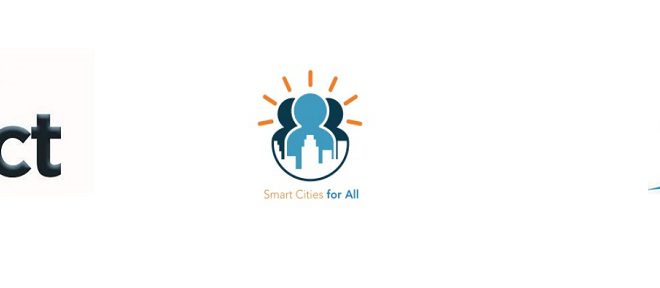G3ict and World Enabled partner with Microsoft to develop Arabic, Hindi, and Marathi versions of Smart Cities for All Toolkit
PRESS RELEASE
FOR IMMEDIATE RELEASE: June 15
Contact: Jonathan Hutson, G3ict, [email protected], 443- 584-3732
G3ict and World Enabled partner with Microsoft to develop Arabic, Hindi, and Marathi versions of Smart Cities for All Toolkit
New translations will contribute to worldwide dialogue on how Smart Cities can be more accessible
Permanent missions of UAE and India sponsor June 15 event at UN headquarters on inclusive ICT in urban planning
New York, NY – June 15 – G3ict and World Enabled – two nonprofits with extensive leadership in inclusive, accessible design – announce the development of Arabic, Hindi, and Marathi versions of the Smart Cities for All Toolkit. The announcement aligns with the tenth session of the Conference of States Parties (COSP) to the Convention on the Rights of Persons with Disabilities (CRPD) on June 15 at United Nations Headquarters in New York. The Microsoft Corporation will support localizing the toolkit into these languages.
Megan Lawrence, Accessibility Evangelist of Microsoft said, “By making these key tools available in Arabic, Hinid and Marathi – we have the opportunity to raise awareness of the importance of accessibility in Smart Cities in geographies with high urbanization. These localized resources can help promote digital inclusion for people with disabilities globally.”
In 2016, James Thurston, Vice President of G3ict and Dr. Victor Pineda, President of World Enabled launched the Smart Cities for All (SC4A), a global initiative to narrow the digital divide for persons with disabilities and older persons. In May 2017, the SC4A launched the toolkit, which provides cities with model policy, an inventory of three key standards that define information and communication (ICT) accessibility criteria, strategies for communicating the importance of digital inclusion in cities, and an alpha version of an inventory of smart cities solutions that could impact digital inclusion.
June 15 event explores accessible technology
The United Nations meeting is the world’s largest gathering of human rights and development experts in the growing field of disability rights. As a part of this session, on June 15 the permanent mission of the UAE, World Enabled, and G3ict are hosting a side event featuring a presentation on “Smart Cities for All: Inclusive ICT in Urban Planning.” Co-sponsors include the permanent mission of India, Microsoft, GAATES, the Institute on Disability and Public Policy, and World Bank. This event at 3:00 p.m. in Conference Room 12 at 1 United Nations Plaza will explore ways in which urban areas around the world can use accessible technology to promote innovation and inclusion.
“The use of innovative technologies to provide our citizens with disabilities greater accessibility is a fundamental priority for the UAE,” said Mrs. Lana Nusseibeh, Ambassador and Permanent Representative of the UAE to the UN. “This event is a crucial step in driving the conversation about the use of technology for the implementation of the CRPD. For our region, the development of the SC4A toolkits in Arabic, will mark an important step in the use of technology for implementing international human rights agreements.”
The United Arab Emirates has been at the forefront of modernizing and digitizing cities. For instance, Dubai has implemented advanced technology in many facets of its infrastructure. India, as well, has one of the fastest growing populations in the world and several of the most populated cities in the world. With the toolkit now at their disposal, local government leaders and innovators will have effective resources at their disposal that will help them create policy, implement technology, and maintain standards of accessibility in their use of ICTs.
Translation of Smart Cities for All Toolkit contributes to worldwide dialogue on accessibility
“We expect to reach millions of people with the translation of the Smart Cities for All Toolkit into Hindi, Arabic, and Marathi,” said James Thurston, the Vice President of G3ict and a moderator for the event. “Our goal with these tools is to support a worldwide dialogue on how smart cities can be more accessible and provide resources to cities upgrading their technology infrastructure, and encourage more cities in every region to use technology to meet international guidelines for accessibility.”
According to the G3ict 2016 Global Progress Report, only 40 percent of countries have accessible government websites. Additionally, the Smart Cities for All survey, which polled experts about the digital inclusion of persons with disabilities and older persons in smart cities, revealed that 60 percent of global experts believe that smart cities are failing people with disabilities. The same study revealed fewer than half of experts know of a smart city project with an explicit focus on accessible ICT.
“We are honored and thrilled that we could do this in a session sponsored by the UAE and India because both countries are advancing bold plans to transform the ways cities can empower all people. In the digital age and as technology becomes more integral in everyday life, building smart cities with accessible technology has become incredibly important, and that is what this toolkit intends to do. Lack of digital inclusion in smart cities can prevent people with disabilities from accessing vital resources as well as exercising their full rights as citizens and members of society,” said Dr. Victor Pineda, President of World Enabled and the Global Alliance for Accessible Technology and Environments.
Upcoming Events
There are no upcoming events.


